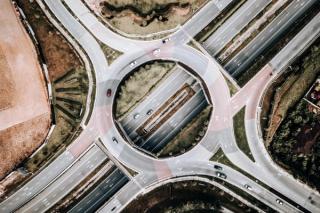
Why social impact must be accounted for like climate and nature
by Clodagh Connolly, Nicola Inge, Andres Schottlaender
View post

As resource and waste professionals, we may have an inherent tendency to view all things related to the circular economy through a purely environmental lens – prolonging the life of products, reducing waste disposal, maximising the reuse of raw materials and reducing exploitation of natural resources in manufacturing processes must be a good thing, right?
But could there be wider, perhaps unintended economic and social consequences? Should we also, as sentient individuals within modern society, at least be considering the wider impacts of a shift to circular business models? For example, how do businesses sustain long term growth and deliver value to shareholders whilst adopting circular principles? Is it even possible? What are the wider implications for the pension funds of millions of individuals if the economic growth of the past can no longer be sustained?
Circular principles are built on the foundations of minimising the occurrence of ‘waste’, through a combination of improved product design, optimised manufacturing processes, enhanced recyclability (for example through more easily replaceable and demountable components) and improved reliability. Intuitively, the development of longer lasting, more ‘sustainable’ products should mean that individual consumption (or purchase in the traditional sense) of goods declines as the need to periodically replace those goods diminishes.
The achievement of all of these objectives would undoubtedly deliver significant and much needed positive environmental outcomes. However, based on the history of manufacturing and retail industries under the linear economic model, this could also represent a key limiting factor in the delivery of long term economic growth.
Manufacturers might expect to see an initial reduction in production costs during the process of moving towards circularity, as material ownership is increasingly retained by the manufacturer and costs associated with management of process wastes (along with consumption of other process inputs such as water and energy) are reduced to a point which is considered to be optimal. This process can clearly deliver economic benefits in the short term, as well as environmental benefits in the short, medium and longer term. But once manufacturing processes have been optimised, and ‘waste’ minimised, how will economic growth be sustained thereafter?
Manufacturers producing the highest quality products with the longest operational life might need to charge considerably higher prices just to maintain their economic performance, and compensate for a reduction in the number of units sold. Sustained growth may then be limited by access to new, expanding markets and the ability (or willingness) of potential consumers within those markets to pay higher prices when comparable, albeit less reliable and environmentally sustainable, goods may be available far more cheaply from other manufacturers.
Does the answer to delivering sustained economic growth lie in a more widespread shift towards a service economy, whereby consumers pay a fee or subscription to benefit from access to a particular product without ever owning tangible assets?
We have already seen this evolution over several decades in the music and television industries, where the historical purchase of vinyl records, cassettes, CDs, VHS tapes and DVDs has been largely superseded by paying subscription fees for access to online streaming services.
The UK automotive industry has also evolved such that consumers have the option to lease a vehicle rather than purchase outright, providing access to the latest models without requiring significant upfront financial outlay. In an era where access to personal credit has become so ‘freely’ available, consumers see immediate opportunities to upgrade their lifestyles without an imperative to save or budget. From an environmental perspective, this vehicle leasing model encourages premature turnover of vehicles which (in theory at least) promotes further manufacturing of new vehicles and has the knock-on effect of increasing supplies of used cars which are then made available at cheaper prices, encouraging yet more consumption and spending.
The UK housing market has developed to a point where many are now simply unable to build up sufficient funds to even consider purchasing property, and the rental model is becoming more prevalent, with the inevitable outcome that more individuals no longer possess physical assets. In the medium to long term, with increasing pressures on the cost of living and retirement ages being pushed back, this decline in ownership of assets could have significant impacts on future generations, as the inheritance of physical and financial resources becomes limited to an ever decreasing proportion of the population.
If similar service / subscription / rental models were to be applied to all aspects of typical modern life, is it inevitable that all assets and resources will be owned and controlled by an increasingly small number of individuals and/or corporate entities? Under such models, would the achievement of ongoing economic growth then come about through perpetually increasing charges levied on individual consumers to retain access to the services offered, many of which could be considered essential parts of modern living? Or is the idea of perpetual economic growth no longer valid and do the foundations on which most modern economies have been built need to change?
Under such circumstances, what might future society look like, potentially with a significantly improved natural environment but with a very different model for the lives of individuals? Is there an element of compromise needed by each of us to fully realise the environmental benefits that a circular economy can provide?
Companies are inundated with pressures from policy makers and consumers who are pushing, or pulling, businesses to operate in increasingly sustainable ways. It can be overwhelming to know just where to start. A short, no obligation conversation with our circular economy teams can identify opportunities for your business.
SLR’s independent experts are passionate about the circular economy and want to help your business to enjoy the benefits. We can identify your opportunities, evidence them to support decision making processes, and guide you through the implementation of changes that reap real benefits. We keep things concise, straightforward and understandable.
The circular economy can offer significant opportunities; reduced supply costs, improved supply chain resilience, new products, new services, cleaner operations, happier customers and access to new markets. Do you want your business to be greener, more efficient, more resilient in a changing climate and fast moving market? We’ll give you the ideas to consider.
For further details or an initial conversation please contact us.